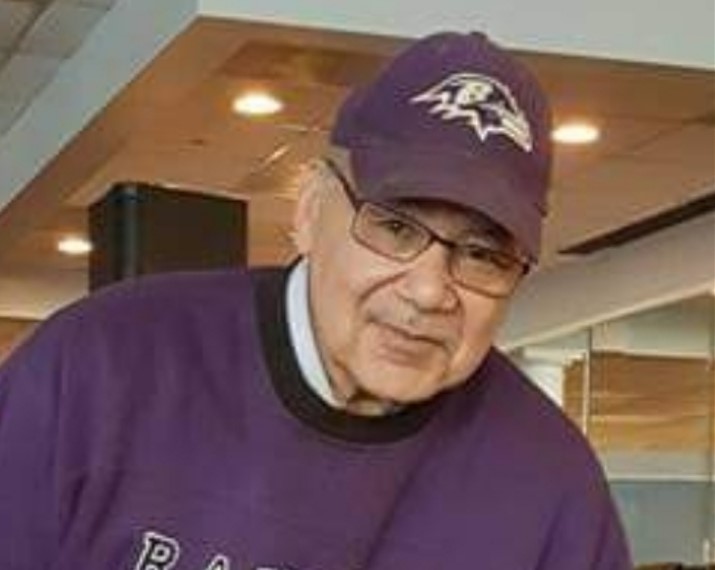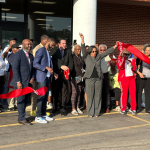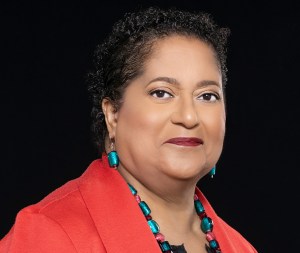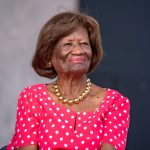By Megan Sayles,
AFRO Business Writer,
msayles@afro.com
The day before Reginald Haysbert Sr., president of The Forum Caterers, was fatally struck by a vehicle in Baltimore County on Sept. 6, the 75-year-old spent his morning at the Baltimore Collegiate School for Boys.
He was there to shake the students’ hands and welcome them on their first day. More importantly, he was there to be an example of what the young men could aspire to become.
Haysbert didn’t do it out of obligation or for praise. Instead, he did it because it was the right thing to do, according to his sister Nikita Haysbert.
“He was always doing the right thing. He was willing to invest in the community whether it had a personal implication to him or not,” she said. “He was just doing it because it was a good thing to do, and he wanted to have a positive impact on those young men in Baltimore City.”
It’s no surprise that the scripture read during his celebration of life in Randallstown, Md., was about the Good Samaritan. During the memorial, friends, colleagues and family members recounted the impact Haysbert had on them through personal stories.
“It was exactly what he would have wanted. He wasn’t a person who loved the limelight, but we made a lot of it about people coming up and saying how they experienced Reggie and how long they had known him,” said Nikita Haysbert, vice president of The Forum Caterers. “All of his grandsons read the scripture and obituary. I know he would have been pleased to see the legacy that he left.”
Haysbert is survived not just by his children, grandchildren and great-grandchildren but also by a legacy of investing in people without expecting anything in return—whether in his professional or personal life.
Before his untimely death, Reginald Haysbert was running The Forum Caterers alongside his younger siblings, Nikita and Brian Haysbert. The 17,000-square-foot catering facility in Northwest Baltimore, filled with five ballrooms and meeting spaces, was opened by his late father, Raymond Haysbert nearly 40 years ago.
He also served on the boards of The Harbor Bank of Maryland, the Baltimore Area Council for the Boy Scouts of America and Associated Black Charities (ABC). He was the longest-serving board member of the latter, and upon his death, he was actively serving on the organization’s finance committee.
“Reggie was that calm, cool, collected kind of person. He wasn’t overbearing in trying to get his point across. He was very deliberate but in a caring way,” said Kenneth Grant Sr., chair of ABC’s finance committee. “His goal was always to do what was best for Associated Black Charities, and you could always count on him to speak up when we needed to know something or to provide guidance when we were going in the wrong direction.”
He was a quiet leader, according to Grant. His deep knowledge of Baltimore’s challenges made him a trusted advisor to the organization.
“I think Reggie knew and understood the personality of Baltimore. He knew the ins and outs and the shortcomings, and he was able to give the board a lot of guidance and direction,” said Grant. “I just think he was a guiding light who had his hand on the pulse of things that were happening in the city— things that maybe many of us can talk about but aren’t as connected to as Reggie was.”
Much of Haysbert’s entrepreneurial spirit and commitment to community came from his father, Raymond Haysbert, who died in 2010. Raymond Haysbert was a prolific business and community leader, as well as a respected political adviser in Baltimore, although he was not native to the city.
He left his home state of Ohio in the 1950s after being recruited by Henry Parks to help lead Parks Sausage Co., a Baltimore-based meat processing company. He moved through the ranks at the business, eventually becoming CEO and president.
Under his leadership, Parks Sausage Co. became the first publicly-traded Black-owned business in the country in 1969. In 1977, the company was acquired by the Norin Corp., but Raymond Haysbert bought it back just a few years later.
All of Raymond Haybert’s children grew up working in the Parks Sausage factory.
“We grew up knowing that we were working for a Black-owned manufacturing business, which was very unusual at the time,” said Nikita Haysbert. “We had discussions about business at breakfast.”
Reginald Haysbert worked alongside his father for 28 years at Parks Sausage Co.. Nikita Haysbert recalled that the pair were both extroverted and that her older brother began to model himself off of his father’s example.
“He began to emulate my father early on. He had this belief that if you sowed into other people and other organizations, sooner or later it was going to come back to you,” she said. “He was constantly giving advice behind the scenes.”
Board service was something Reginald Haysbert learned from his father. Raymond Haysbert worked with the Greater Baltimore Urban League, the Federal Reserve Bank in Baltimore and Equitable Trust Co. which is known today as Equitable Bank.
He was also one of the four founding members of the President’s Roundtable (PRT), an organization of high-growth African-American business leaders that work to advance opportunities for all minority entrepreneurs.
“He was a huge part of my success, and not just mine–Ray mentored so many of us,” said Stanley Tucker, president of Meridian Management Group and member of PRT. “He literally saved my life.”
Raymond Haysbert was one of Tucker’s professors at Morgan State University, but their relationship continued long after their time at the historically, Black college. After being forced to drop out of school to provide for his pregnant girlfriend, Tucker was apprehended for selling two, $5 bags of cannabis. He served 10 years in prison.
Although he later earned a business administration degree from MSU and went to graduate school at Carnegie Mellon University, Tucker knew he would face challenges trying to work in finance as a formerly incarcerated individual. However, he applied to work at Equitable Trust Co..
“Because I was an ‘ex-convict,’ my application had to go all the way to the board,” said Tucker. “It just so happened that Ray Haysbert was the only African-American on the board there. They hired me on the word of Ray Haysbert.”
Tucker later ended up living right across the street from Raymond Haysbert near Lake Montebello in Northeast Baltimore. The pair would often go on walks around the lake together.
“When I couldn’t figure things out, I would say, ‘Ray, let’s walk,’” said Tucker. “We would exercise and walk around that reservoir, and by the time we finished, I knew what direction I needed to take. He played a huge role in where I am today.”
Megan Sayles is a Report for America corps member.
The post Honoring the charitable and entrepreneurial legacy of Baltimore’s Haysbert family appeared first on AFRO American Newspapers .











